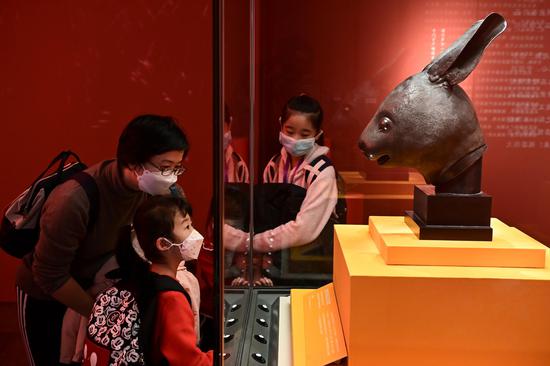(ECNS) -- Currently, the COVID-19 epidemic will mostly affect the group that has not been infected yet, which accounts for about 15 to 20 percent of the total population in China, said Professor Lu Mengji from the Institute for Virology of the University of Duisburg-Essen in Germany on Sunday.
Although the present situation is better than before when the whole population was susceptible to infection, given China’s large population, a large number of people were still at risk of infection, Lu told China News Service (CNS).
Referring to the infection situation in Germany, Lu predicted that the number of infected people in China would remain at a high level, while patients seeking medical treatment would be less than before, but figures would fluctuate.
Li Dongzeng, a doctor at Beijing You-An Hospital, told CNS on Sunday that the spread of the virus in the short term will slow down and infections will decrease because in the past two months, over 80 percent of people in wide China has been confirmed with the epidemic and an immune barrier has been established already.
But in the next three to six months, the immune protection will be weakened, which means that the infection risk will increase, and if virus mutations with stronger ability to evade immune defenses occur, people are about to suffer higher risk of reinfection, bringing another infection wave, said Li.
“But the situation won’t be as severe as that of the end of last year,” said Li, adding that people with a well-functioning immune system will boost immunity after infection, therefore, the possibility of suffering severe symptoms will be lower and the symptoms will be alleviated even if infected with the disease again.
Li suggested that people who have infected with the COVID-19 should get booster shots half a year after infection, especially the senior people and those with underlying diseases, in order to better protect themselves.
The current COVID-19 epidemic wave in China has ended, and the virus did not rebound significantly during the Spring Festival holiday, the Chinese Center for Disease Control and Prevention said recently.
Furthermore, no new virus mutations were identified during the recent epidemic, the Chinese CDC said in a report dated on Jan 25.


















































 京公网安备 11010202009201号
京公网安备 11010202009201号